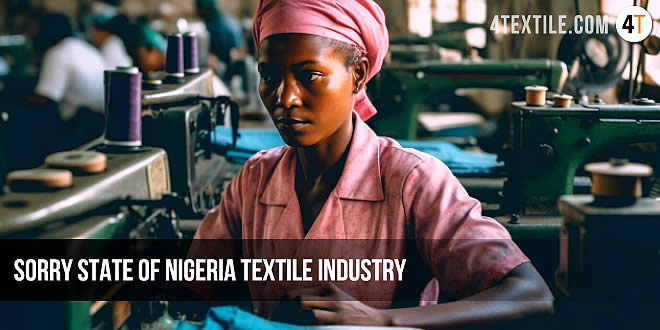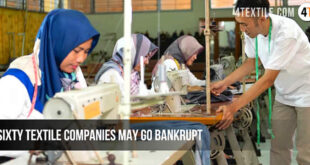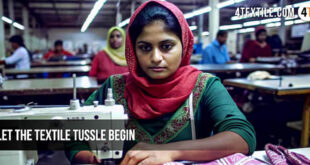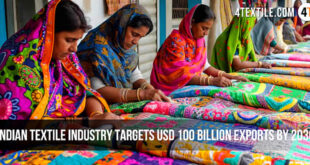The disclosure by the Federal Government that the neglect of the textile industry has cost the country more than $30 billion in the importation of textile raw materials is a sad development. It is, however, a reflection of the sorry state of the textile industry that was previously one of the major contributors to the nation’s Gross Domestic Product (GDP). According to the National Bureau of Statistics (NBS), over 200 textile industries across the country had been shut down, and more than half a million jobs lost due to the neglect of the textile sector. The sector used to provide about 700,000 direct and indirect jobs to Nigerians.
Sorry state of Nigeria Textile Industry:
Senior Special Assistant to the President on Agribusiness, Productivity and Housing, Dr. Kingsley Uzoma, says the government regrets that the humongous amount spent on imported textile materials would have helped to boost the foreign exchange (fx) liquidity if the money had remained in the country. Instructively, the government has vowed to revamp the sector and create a projected 1.4 million jobs annually. This is an ambitious plan that must begin with addressing the structural deficiencies that hamper the sector and revive all the moribund textile / cotton factories across the country.
Available statistics showed that no fewer than 145 Cotton, Textile Garment (CTG) mills across the country collapsed between 1980 and 2016 due to harsh economic condition. Although the administrations of Goodluck Jonathan and Muhammadu Buhari unveiled plans to revive the textile / cotton industry, not much was achieved in that direction despite huge funds budgeted to revamp the ailing industry. For example, the Jonathan administration in 2010 unveiled N100 billion plan to resuscitate the moribund industry under the supervision of the Bank of Industry (BoI). Its target was to create 8,000 jobs. But, little came out of the intervention programme. The country must regain the lost glory in the membership of International Cotton Advisory Community, which it lost decades ago as a result of lack of concrete policies that would revive the section.
The government must now recognise the importance of promoting local production of fabrics and ban the importation of textile materials and give adequate incentives to local manufacturers. Statistics show that a vibrant textile and cotton industry can create over 15 million jobs, a step that will curb the rising unemployment in the country. Before most of the textile factories went comatose, the sector was ranked as the second biggest employer of labour, after agriculture, before the discovery of oil. For a realistic revamp of the sector, government must address the constraints that continue to hamper the industry that led to its collapse.
These include high cost of raw materials for production, competing cheap textile imports from Asian countries, smuggling and uncontrolled dumping of substandard textile materials, unstable power supply, unstable foreign exchange rate, among other constraints. According to the Manufacturers Association of Nigeria (MAN), during the golden era of the industry, the annual growth of the sector was 67 per cent, and 25 per cent of the country’s GDP. That was the good of years of local textile and garment industries such as Akwete, Asaba textile mill, Aswani, Texlon, Boujson, Enpee, Sunflag and others.
While adequate financial intervention is necessary to revive the moribund industry, the government should provide the enabling environment to make them thrive. There should adequate power supply, as well as tax waivers and special incentives. Nigerians should also patronize local fabrics. There is need to ban foreign garments and fabrics that can be produced locally. Countries that have made their marks in the competitive global markets are those that promote the consumption of locally manufactured goods. At the same time, the government must address the scarcity of foreign exchange. However, the active participation of the private sector is crucial for the revival of the textile industry. In this regard, Nigeria’s textile industry could also benefit immensely from regional and global partnerships. Collaborative ventures with textile industries in other African countries or with global brands can help open up new markets for Nigerian textiles. It is important that Nigerian textile manufacturers embrace modern technologies in textile production. Besides, the government should also use the textile sector as part of its policy reforms to diversify the economy. Additionally, improving the non-oil sector through the mass production of cotton, cocoa, cashew and rubber will stimulate economic growth.
 4Textile.com World Textile & Apparel Industry Events, News
4Textile.com World Textile & Apparel Industry Events, News







